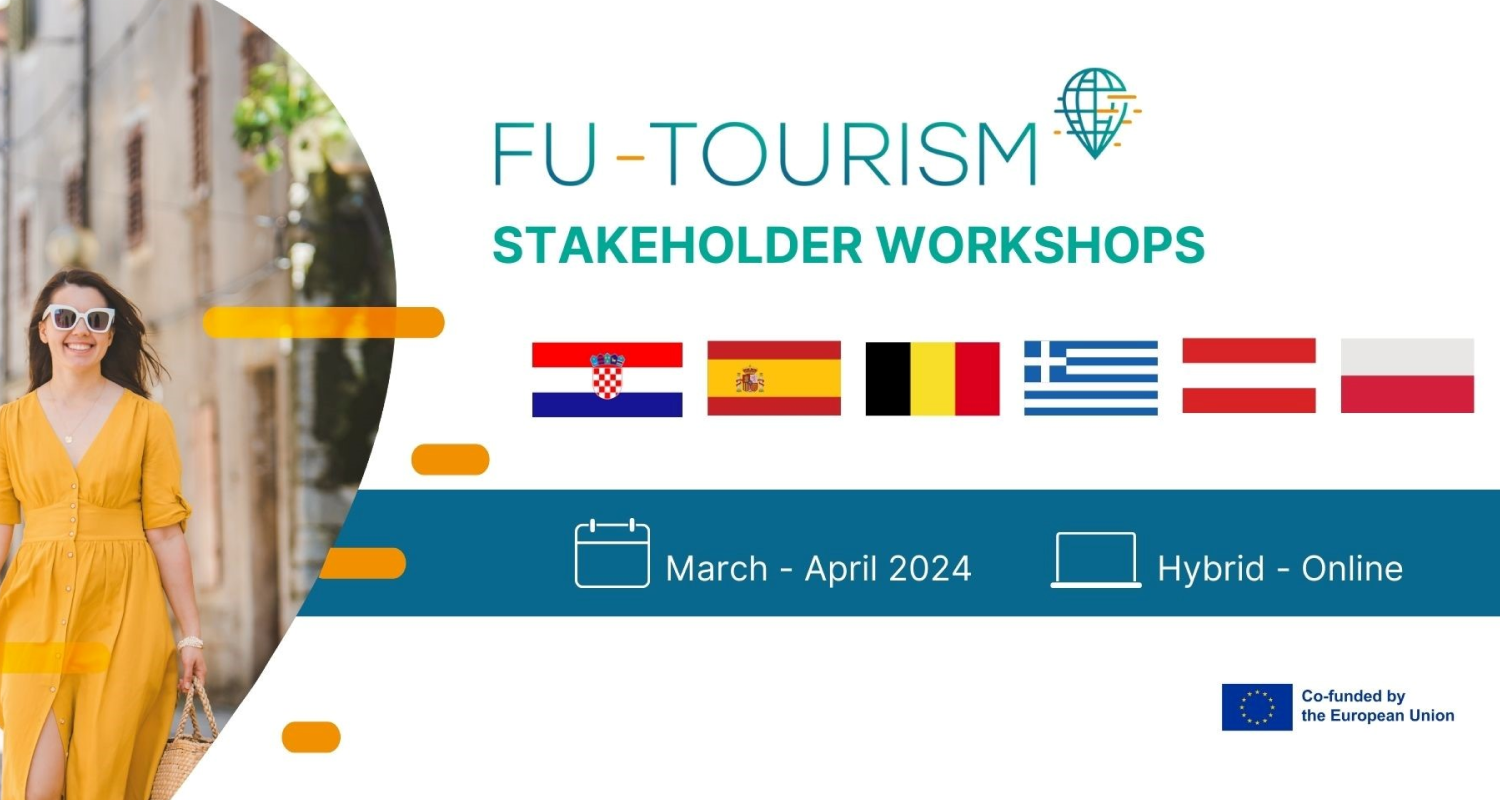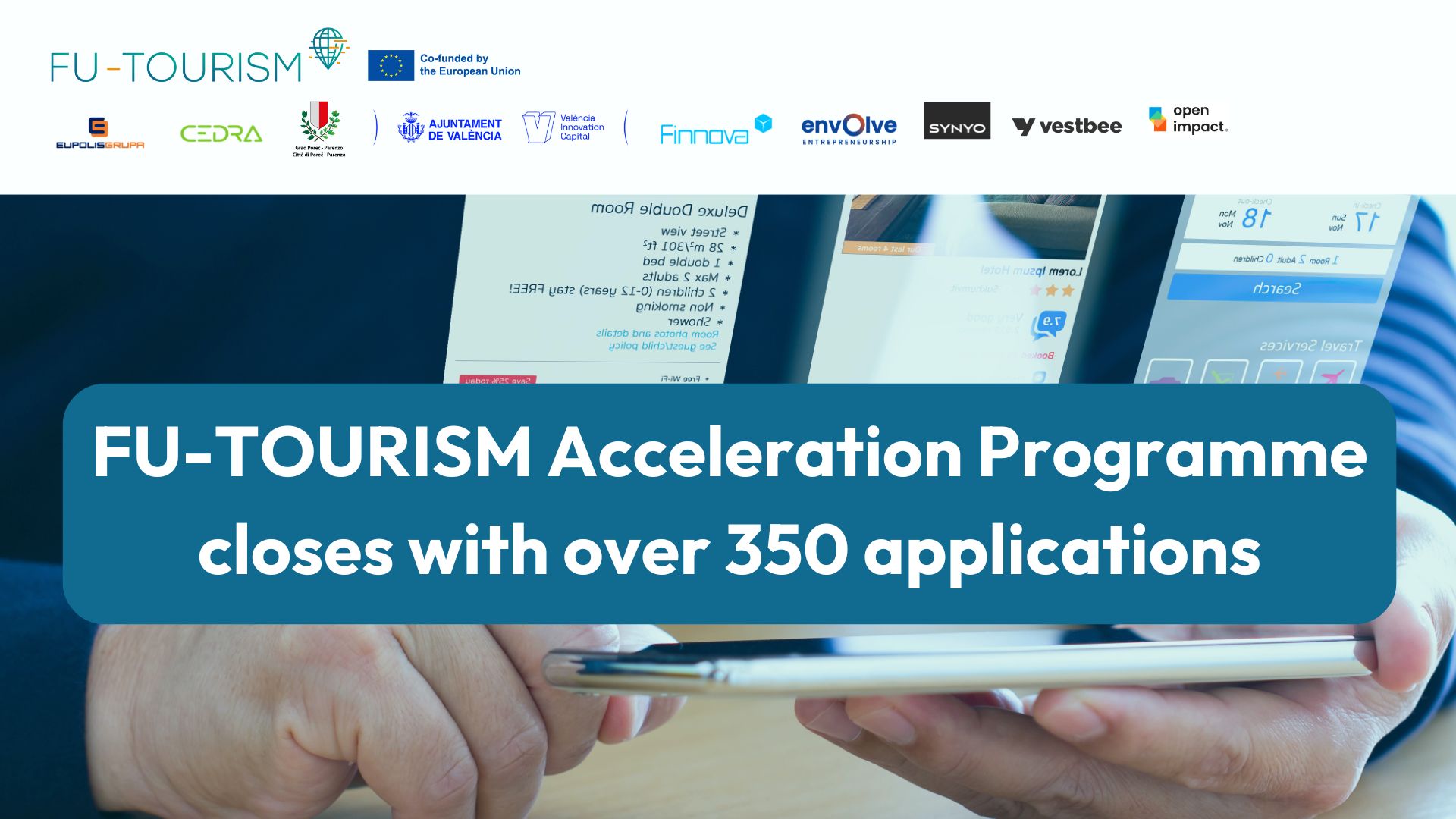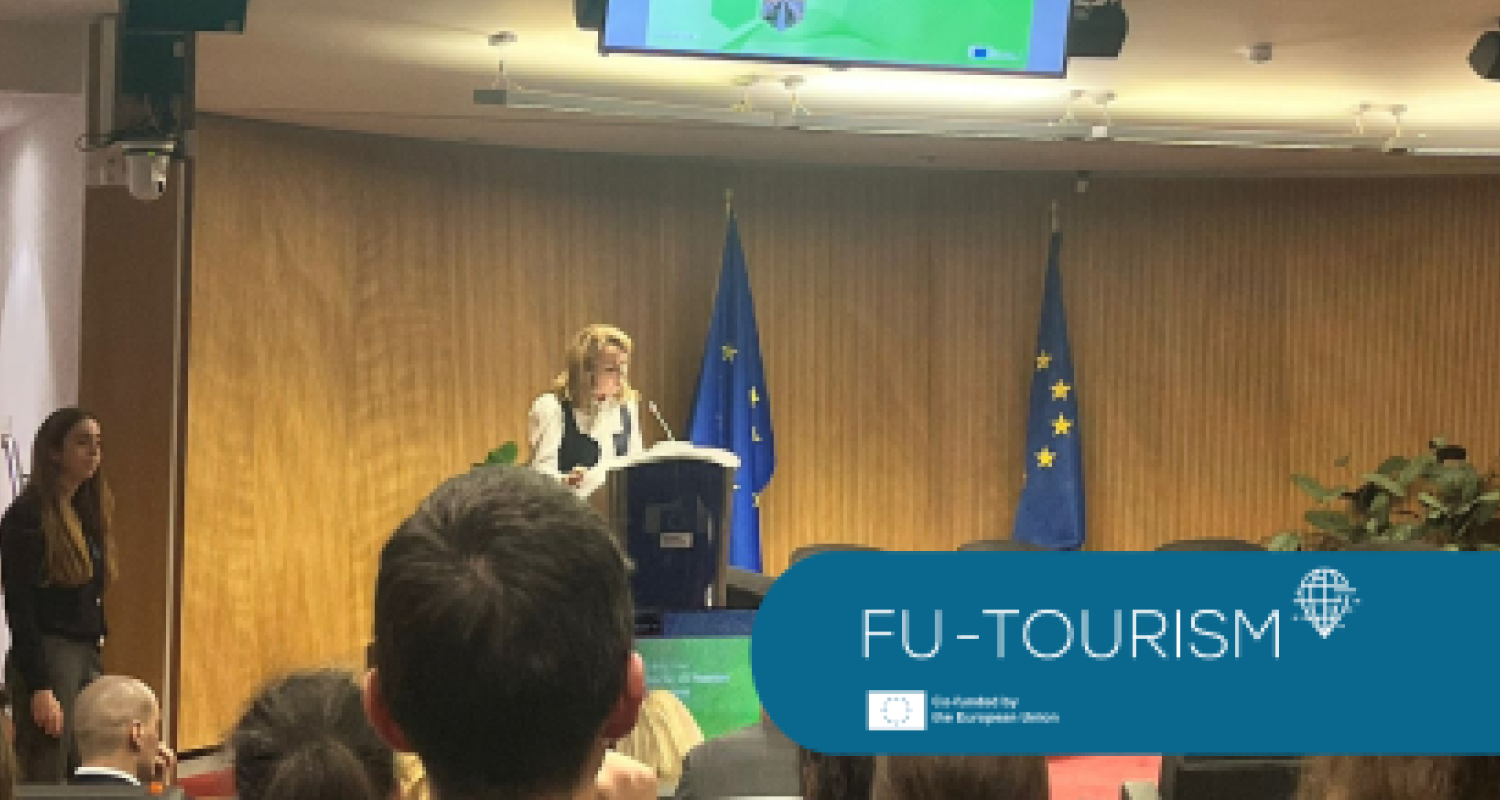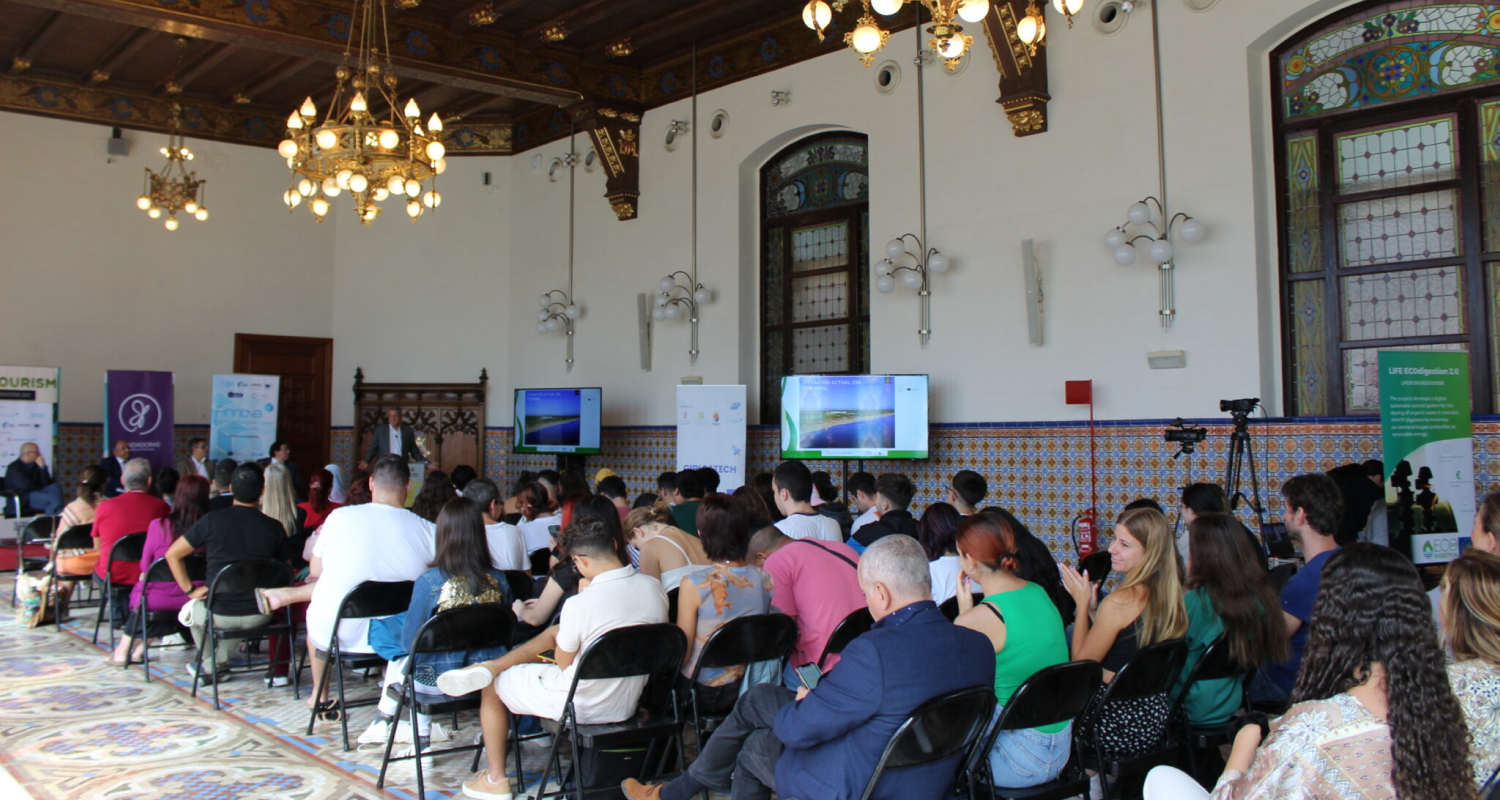
Transforming tourism through Sustainability and Digitalisation: Insights and Opportunities from Our FU-TOURISM Stakeholder Workshops
- In the first half of 2024, the FU-TOURISM project conducted a series of six comprehensive workshops to bring together diverse ecosystems of stakeholders and discuss the challenges and opportunities in the tourism sector, with a particular focus on sustainable and digital development.
- The workshops highlighted the potential of digital technologies to improve the tourism experience and operational efficiency, as well as the growing consumer preference for sustainable tourism practices.
As the tourism sector navigates the challenges and opportunities of the 21st century, stakeholder engagement and the promotion of sustainable and digital transformation are paramount. The FU-TOURISM project has recognised this by conducting a series of stakeholder workshops in the six countries that will implement the project’s business support network – Croatia, Belgium, Greece, Poland, Spain and Austria.
These workshops are key to furthering the project’s overall objectives of promoting green and digital transitions in the tourism sector and building highly engaged local ecosystems. By bringing together diverse stakeholders, including SMEs, citizens, government institutions and local communities, these workshops have laid the groundwork for collaboration towards a more sustainable and technologically advanced tourism sector.
ENGAGING STAKEHOLDERS: A COLLABORATIVE APPROACH
The primary objective of the stakeholder workshops was to build local tourism ecosystems that support the digital and green transition. This initiative aligns with the broader goals of the FU-TOURISM project to accelerate sustainable development and innovation within the tourism sector. The workshops were designed encourage active participation and dialogue. Using a dynamic format that combined presentations, panel discussions, and interactive sessions, we provided a platform for stakeholders to exchange ideas, best practices, and experiences.
KEY FINDINGS FROM THE WORKSHOPS
- Sustainability and Consumer Trends
One of the most significant insights from the workshops is the growing consumer emphasis on sustainability. Today, travellers increasingly choose destinations that prioritise environmental and social responsibility. This trend underscores the necessity for tourism businesses to adopt comprehensive sustainability practices to meet evolving consumer preferences.
In Greece, for example, participants emphasised the crucial role of sustainability in enhancing the local tourism ecosystem. Discussions highlighted successful examples and the need for strategic collaboration to support the transition towards more sustainable practices.
- Digital Innovation and Barriers to Adoption
While digital innovation offers transformative potential for the tourism industry, the workshops revealed several barriers. Resistance to change, digital divide issues, and a lack of data standardisation are significant challenges, particularly among small or family-owned businesses.
In Croatia, our workshop successfully attracted a diverse range of stakeholders through strategic engagement methods, including personal contacts and targeted media announcements. This approach facilitated robust discussions on the strengths and weaknesses of Croatia’s tourism sector, with a particular focus on the role of digital tools in promoting eco-friendly practices.
- Public-Private Collaboration and Funding
Effective collaboration between public agencies and small and medium-sized enterprises (SMEs) proved to be an essential factor for sustainable tourism. Our workshops in Belgium and Poland underscored the value of intelligence reports and European funding to support sustainable tourism initiatives. Participants stressed the need for better funding mechanisms and comprehensive training programs to strengthen the digital readiness and sustainability of the sector.
On the other hand, the Austrian workshop highlighted the absence of a definitive tourism strategy by central and local governments, leading to inefficiencies in policy enactment and project synchronization. This is another challenge that adds to this institutional dimension and reveals the importance of cooperation for the effectiveness of projects aimed at enhancing tourism.
The Belgian workshop, held in the framework of the Belgian Presidency of the Council of the EU, was attended by representatives of Belgian and European institutions. Discussions focused on the challenges of financing, the availability of qualified personnel and the need for an integrated approach.
- Rural Development and Regional Revitalisation
The workshops identified significant opportunities for rural repopulation and regional development, particularly through digitalisation and European funding. In Spain and Greece, stakeholders recognised the potential of rural areas to benefit from targeted digital initiatives, promoting local entrepreneurship and contributing to regional economic growth.
The workshop in Spain, integrated into the prestigious TRANSFIERE forum as a “Side Event,” provided high visibility and credibility. It offered rich insights into the threats and opportunities presented by digitalisation and sustainability, emphasising the potential for innovation in Spanish tourism.
- Capacity Building:
The workshops emphasised the need for training and resources to empower SMEs in adopting sustainable and digital practices. This includes developing comprehensive training programs and providing access to necessary technological tools.
The workshop, held in Spain, placed special emphasis on capacity building as a cornerstone of sustainable tourism development. Participants highlighted the critical need for robust training programs and resources to empower SMEs to adopt sustainable and digital practices. This focus on capacity building aims to foster a more resilient and adaptable tourism sector, capable of responding to changing market demands and environmental challenges.
BUILDING STRATEGIC PARTNERSHIPS FOR A SUSTAINABLE TOURISM FUTURE
The FU-TOURISM project has achieved a significant milestone with the creation of an interactive stakeholder map, which provides a comprehensive visual representation of the diverse and vibrant tourism ecosystem across six European countries. This map is closely linked to the stakeholder workshops, serving as both a foundation and an extension of the collaborative efforts initiated during these events. Developed from the ideas and data collected during the workshops, the map visually represents more than 2,300 observations across various categories, highlighting the interconnectedness of the tourism sector.
The stakeholder workshops facilitated the identification and participation of key stakeholders, whose input was crucial in populating and refining the ecosystem map. This interactive tool continues the dialogue and collaboration initiated during the workshops, enabling stakeholders to visualize their connections, identify new partnership opportunities, and collectively drive the green and digital transformation of the tourism sector. This synergy ensures that the outcomes of the workshops are sustained and scaled up, fostering a comprehensive and interconnected tourism ecosystem across the participating countries.
Moreover, these workshops have provided valuable insights into the current state and future potential of the tourism sector within the network, insights that can be extrapolated across Europe. By fostering innovation, embracing digital technologies, and promoting sustainable practices, the FU-TOURISM project aims to create a more resilient and competitive industry. We invite stakeholders to join us on this transformative journey. Together, we can address challenges, leverage opportunities, and build a tourism sector that is sustainable, innovative, inclusive, and equitable for all. For more information on how you can be part of this exciting future, please contact us or visit our website. Let’s shape the future of tourism together!




